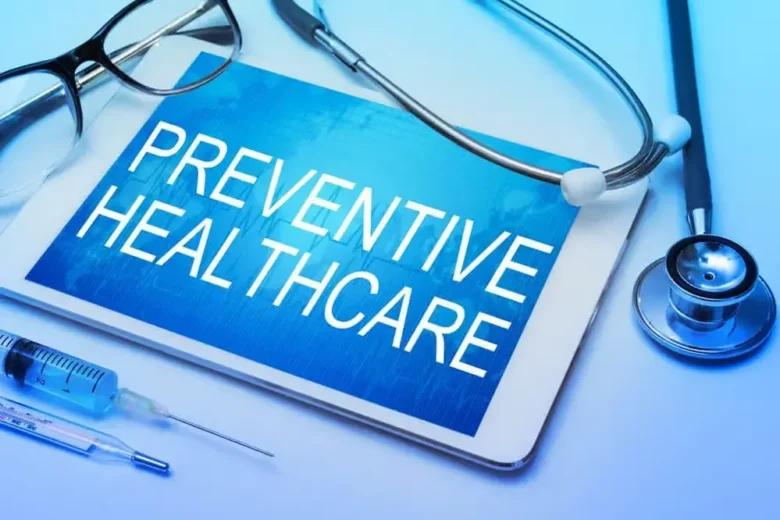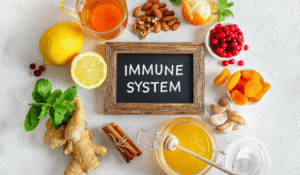In our busy modern lives, we often take our health for granted—until something goes wrong. But what if we could prevent most diseases before they even develop? That’s the goal of preventive healthcare. Preventive healthcare emphasizes maintaining health and identifying health problems early, when they are most treatable, rather than waiting for the disease to develop. Preventive healthcare is the cornerstone of a longer, happier, and more fulfilling life. It encompasses everything from routine checkups and vaccinations to a balanced diet, exercise, and mental health. It’s a smart and cost-effective strategy that improves overall quality of life while reducing healthcare costs. In a world where chronic diseases are becoming increasingly common, preventive healthcare is crucial.
Understanding Prevention in Healthcare:
Preventive healthcare focuses on stopping diseases before they develop. It includes preventive measures that reduce the risk of disease, such as routine checkups, vaccinations, and lifestyle changes. Preventive healthcare emphasizes early detection and intervention, rather than waiting for symptoms to appear. Routine blood tests, for example, can detect conditions like diabetes or high cholesterol before they become serious.
This type of care also includes lifestyle changes that strengthen the body’s defenses, such as healthy eating, regular exercise, smoking cessation, and stress management. The World Health Organization (WHO) states that regular checkups and a healthy lifestyle can prevent approximately 80% of chronic diseases, including heart disease, stroke, and type 2 diabetes. Prevention is always more effective and cost-effective than treatment. It is a simple yet effective concept.
Key Benefits of Preventive Healthcare:
Besides the benefits to physical health, preventive healthcare also contributes to mental, emotional, and financial stability. When diseases are detected early, treatment can begin before they become serious or life-threatening. Preventive treatment is both reasonable and cost-effective because it can significantly reduce hospitalizations, surgeries, and long-term prescription drug costs. It reduces the risk of chronic diseases, which often manifest unnoticed, allowing people to live longer and healthier lives.
Overall, preventive healthcare improves public health by reducing the overall disease burden. Furthermore, knowing that you are proactively managing your health, rather than reactively responding to medical emergencies, provides peace of mind. By empowering people to take control of their health, this strategy promotes a lifestyle that views health as an investment rather than an afterthought.
The Role of Lifestyle and Diet in Preventive Healthcare:
Our daily decisions, especially those related to diet and lifestyle, play a crucial role in preventive healthcare. Every function in our body is fueled by the food we consume, and the quality of that energy determines how well our body functions. A balanced diet with fruits, vegetables, whole grains, lean meats, and healthy fats can boost immunity and prevent chronic conditions such as diabetes, obesity, and cardiovascular disease. An active lifestyle also contributes to cardiovascular health, mood, and weight management.
Exercise doesn’t have to be complicated; it can be as simple as a daily walk, bike ride, or yoga. Important preventive measures also include adequate sleep, stress management, and avoiding negative habits like smoking and alcohol. A healthy lifestyle can extend lifespan, improve daily vitality, and enhance mental clarity. This suggests that mindful living is the first step in prevention.
Regular Checkups and Screenings:
Preventive healthcare relies on routine physical examinations. These exams can help detect potential health problems early, sometimes even years before symptoms appear. Regular physical examinations can reveal hidden problems, such as early-stage cancer, high blood pressure, or abnormal cholesterol levels. Similarly, blood sugar tests, colonoscopies, and mammograms, if performed promptly, can save lives. Unfortunately, many people neglect these checkups due to fear, cost, or neglect, missing opportunities for early intervention.
Regular skin, eye, and dental checkups are also crucial, yet often overlooked, components of preventive care. Even if you feel well, visiting the doctor at least once a year is a small step toward preventing serious health problems. Consistency is crucial for preventive healthcare because regular checkups provide a clear picture of your health, allowing doctors to detect changes and take timely action.
A Mental Health Perspective in Preventive Care:
When people think of health, they often think of physical health, but mental health is just as important. Chronic stress, anxiety, and depression can affect overall health, increase the risk of cardiovascular disease, and weaken the immune system. Recognizing mental health as an integral part of overall well-being is a crucial component of preventive care. Simple techniques such as mindfulness, meditation, social interaction, and regular distance from electronic devices can prevent burnout and emotional fatigue.
Early professional help, such as counseling or therapy, can prevent minor problems from developing into more serious mental health conditions. Because preventive mental health care can make people happier and more productive, many businesses and educational institutions are now prioritizing mental health programs. A healthy body is the foundation of a healthy mind, and a healthy mind and body create a strong balance for overall health.
Vaccinations: A Vital Part of Preventive Care
Vaccinations are one of the best and most proven preventive care methods. They protect people and entire communities from infectious diseases, including COVID-19, hepatitis, influenza, and other illnesses. Vaccinations reduce the risk of severe illness and outbreaks by strengthening the immune system’s ability to recognize and fight specific infections. Adults also need booster doses and regular vaccinations to maintain immunity, so vaccinations aren’t just for children. Keeping up-to-date on vaccinations protects not only yourself but also vulnerable groups, such as the young, the elderly, and those with weakened immune systems. Vaccination programs are a crucial part of any preventive health strategy, as they significantly reduce the global burden of disease.
Conclusion:
Preventive healthcare is more than just a medical concept; it empowers people to create a better, more sustainable future. By applying the principle of prevention over cure, people can avoid unnecessary suffering, reduce medical costs, and live better lives. Building strong, resilient health requires up-to-date vaccinations, physical activity, mental health, a balanced diet, and regular checkups. People who prioritize prevention have more power to take charge of their lives and make decisions that contribute to their long-term health. In a world of rising medical costs and rapidly changing diseases, preventive care is the simplest, smartest, and most effective way to save yourself and your loved ones. Remember: if you take good care of your health now, you will be healthier and happier tomorrow.
FAQs:
1. What is preventive health care?
Regular checkups, screenings, vaccinations, and lifestyle choices that help prevent disease are all part of preventive care.
2. What is the importance of preventive care?
Emphasizing long-term health to reduce medical costs, improve quality of life, extend life expectancy, and help detect diseases early.
3. How often should I undergo a health screening?
While the frequency of screenings varies based on age, gender, and medical history, adults should have a complete physical checkup at least once a year.
4. Does preventive care really save money?
Yes, absolutely. By identifying problems early, preventive care can reduce the need for costly surgeries, hospitalizations, and treatments.
5. Is mental health part of preventive care?
Of course. Balance, stress reduction, and resilience are important components of preventive care, which focuses on mental, emotional, and physical well-being.




